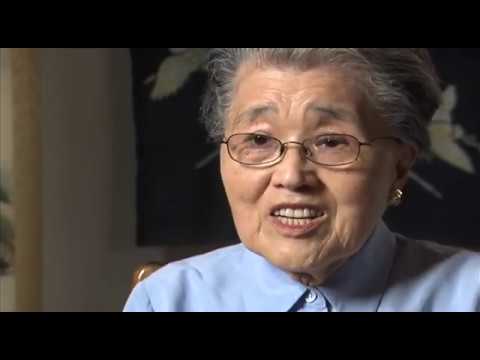Manzanar poor conditions – Nobi Omoto (OH0054)
Transcript
Interviewer: What was your first impression of Manzanar?
Nobuko Omoto: It was horrible. I could have just sat down and cried. Because we were the first evacuees and there were… we were separated into blocks, you know. And first and second block were filled by bachelors or volunteers, I heard, and Bainbridge people were in the third block. And we had… it was a long barrack, flimsily built, and we had the end room. And it opened up like a barn door, that particular room, roughly built. And winter it was cold, wet, muddy. It was awful going to the central washroom, and it was awful going to the mess hall. First, the food wasn’t very good, people got sick.
And summertime, wind blew. And the building was so built in a hurry, the sand came up between the, of the floor and the, by the windows, the wind came and the sand came in all over and we had one big pot belly coal stove which we had to haul our own coal. It was dirty. But how else could you keep warm, see? And, and we had a rough, bumpy straw mattress with two army blankets. So, I think that Sears–Roebuck had a good business because we needed more things, so a lot of people ordered, eventually ordered.



